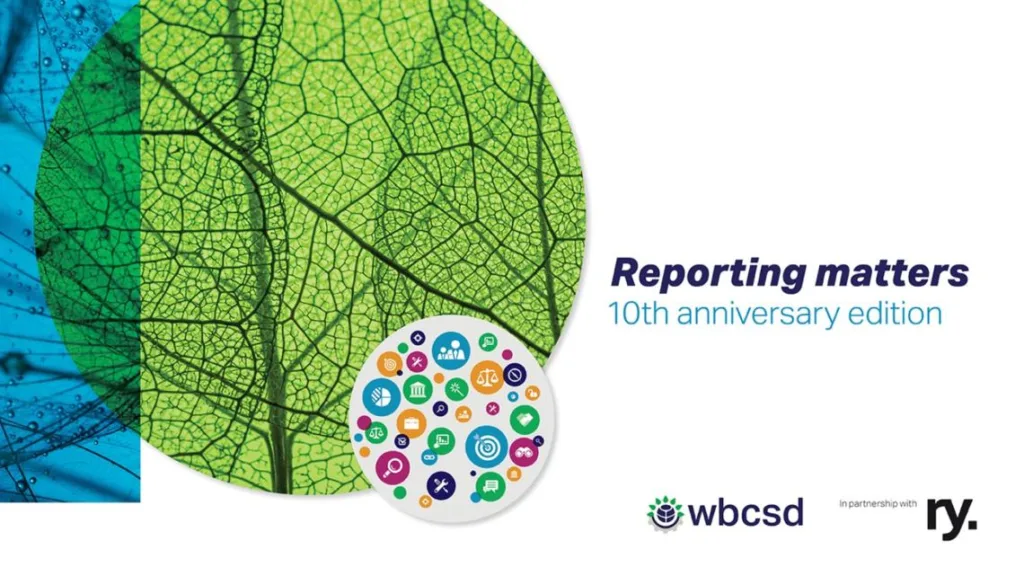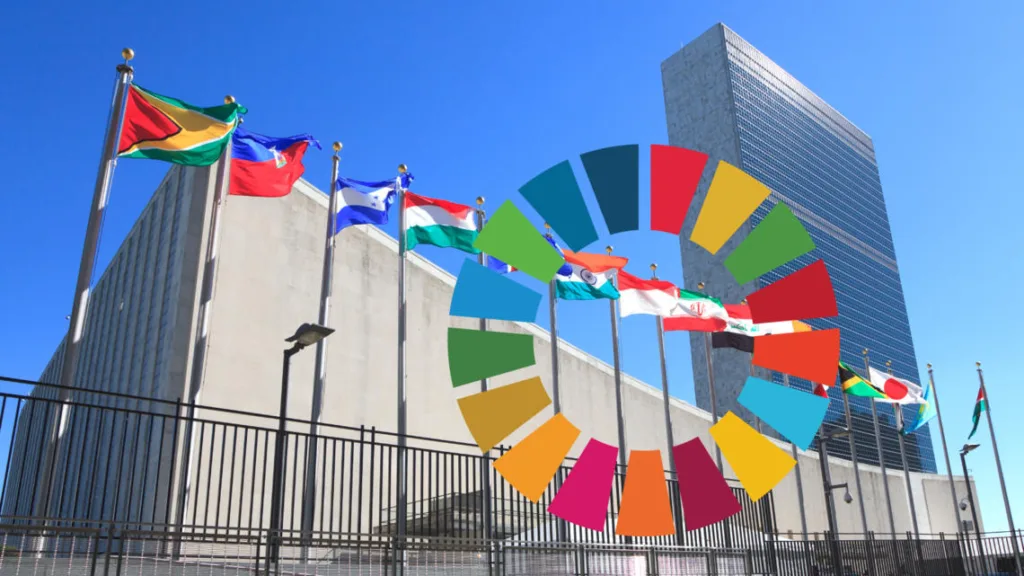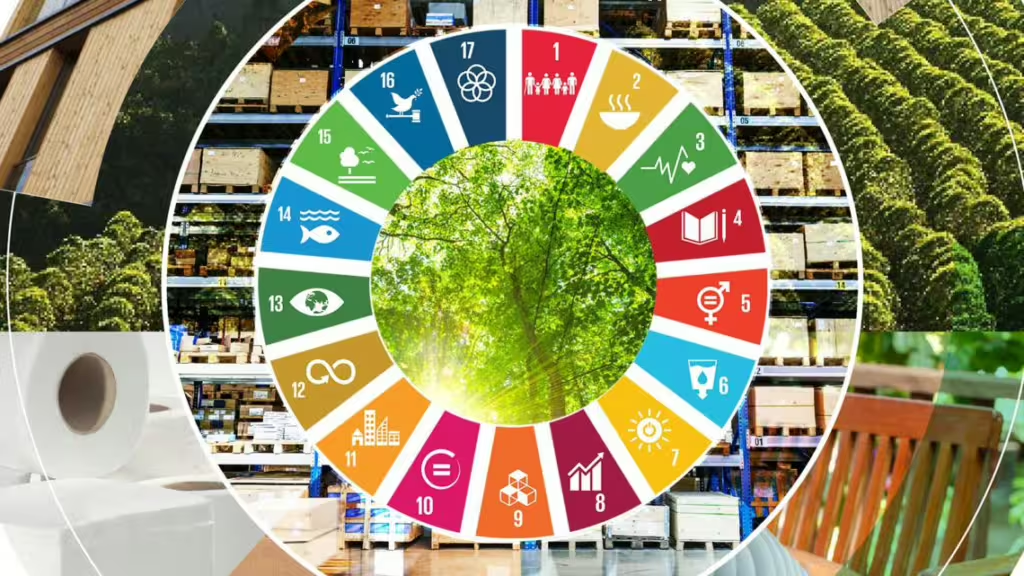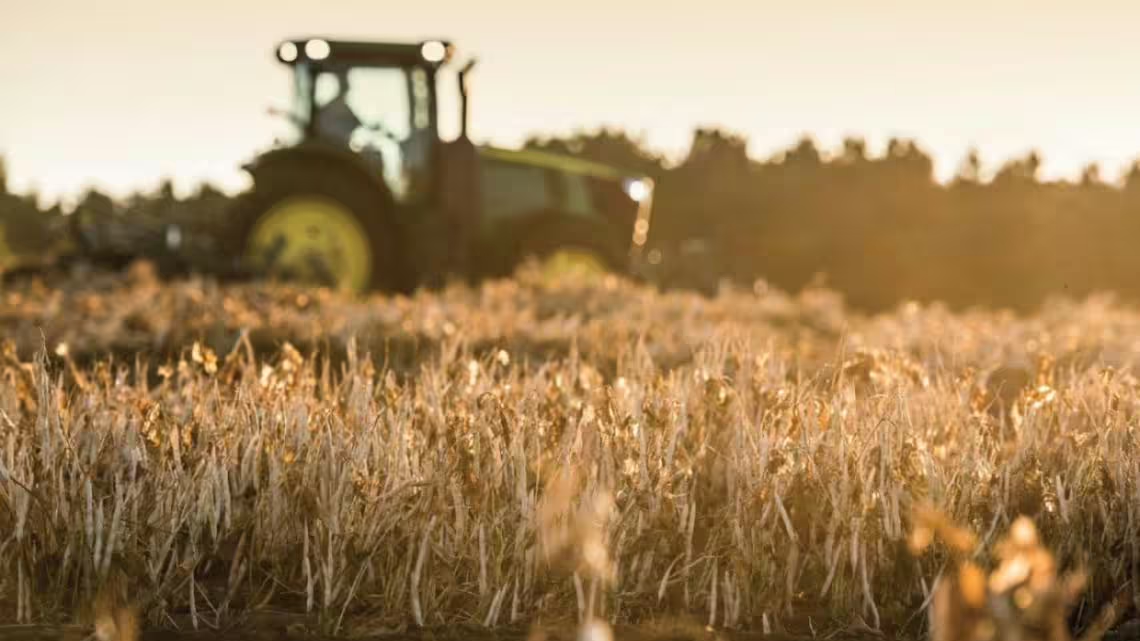U.S. Farmers & Ranchers in Action (USFRA) , together with the World Business Council for Sustainable Development (WBCSD) published a new Sustainable Development Goals (SDG) Roadmap report to assess the opportunities for U.S. agriculture to continue driving a resilient and sustainable agricultural system while resiliently confronting new crises along the way. Established in 2015, the SDGs provide a universal framework of 17 goals to end poverty, protect the planet, and ensure prosperity for all, to be achieved by 2030. The SDGs can also help farm businesses, processors and companies throughout the agricultural value chain to analyze and address operational and regulatory risks, and to maintain faith and support from society as a whole.
The report comes at an extremely important moment in time for transforming food systems. While U.S. agriculture already has substantial positive environmental, social and economic outcomes, helping to achieve these SDGs by unlocking potential opportunities and avoiding risks is beyond the reach of any one business, and requires innovative new forms of collaboration at scale. The SDGs provide an essential benchmark to measure sustainable production while delivering stewardship in support of people, the planet prosperity and peace.
This SDG Roadmap for U.S agriculture will enable key players across the diverse U.S. agriculture value chain to establish their contribution to the SDGs, focusing on solutions for people, planet and process. It provides an initial mapping of U.S. agriculture’s performance against the SDGs and identifies how the U.S. agriculture sector can continue to build greater resiliency while delivering business value through addressing risks and opening up new growth markets. This long-term vision is all the more necessary to address the enduring impacts from COVID-19 and social disruption related to inequity and inequality.
USFRA released the SDG Roadmap report at its annual Honor the Harvest Forum, which virtually convened more than 200 farmer, rancher, food, agriculture, finance, science and technology leaders to finalize a first-of-its-kind food and agriculture sector-wide vision: a future where a resilient, restorative, economically viable, and climate-smart agricultural system produces abundant and nutritious food, natural fiber and clean energy for a sustainable, vibrant and prosperous America. On 23 September during Climate Week USFRA and WBCSD convened a panel discussion bringing farmers to discuss the agricultural sector as an important contributor of climate solutions. That discussion can be viewed here.
USFRA, WBCSD, Nutrien, Bayer and US Dairy Export Council were interviewed by Climate Week media partner FinTech.tv in a related conversation on Transformative Investment in Climate Smart Agriculture viewable here on 24 September.
Collaboration and partnership are essential to realizing the SDGs and U.S. Agriculture has a huge role to play. WBCSD welcomes the leadership demonstrated in this SDG Roadmap for U.S. Agriculture, and is committed to supporting the essential investment, technologies and innovation required to meet the SDGs for our food system.
- Diane Holdorf, Managing Director for Food and Nature at WBCSD
U.S. agriculture has the opportunity to significantly drawdown atmospheric carbon and the potential to be the first ‘carbon positive’ sector in the U.S. economy. However, farmers and ranchers can’t and shouldn’t do it alone. They and rural communities should gain economically from the improvements made to create healthier soil, conserve water, and protect nature.
- Erin Fitzgerald, USFRA CEO
In developing this report USFRA has leveraged WBCSD’s Scaling Positive Agriculture work and SDG Sector Roadmap Guidelines, a framework that provides guidance and inspiration to entire sectors in their efforts to identify and realize their potential to help realize the ambitions of the SDGs.
This U.S. Agriculture SDG Roadmap builds on extensive work by WBCSD to support the development of SDG sector roadmaps for a wide cross section of different industries. Roadmaps for the chemical, forest and Indian cement sectors have already been launched, while efforts are also underway to finalize roadmaps for the electric utilities, tire, and oil and gas sectors.
These sorts of sector-level efforts to drive progress on the SDG agenda are more important than ever before. The COVID-19 pandemic has laid bare multiple risks and fragilities across our economic, social and environmental systems and underlined in merciless fashion how far away we are from achieving some of our goals. At the same time, the SDGs and the pathway to prosperity for people and planet that they represent, provide us with a ready-made universal framework to help realize the collective ambition of building back better. Placing the SDGs at the core of response efforts offers ample opportunity for innovation, global collaboration, building resilience, and redefining business success.
WBCSD resources on business and SDGs
- The CEO Guide to Food System Transformation
- Why realizing the SDGs is more urgent than ever before
- Entering a Decade of Action: Making the SDGs a matter of priority
- SDG sector roadmaps
- SDG Essentials for Business – e-learning tool available in English, Japanese and Spanish
- SDG Business Hub – captures and packages latest insight, developments and emerging trends on the SDGs to support business in navigating this dynamic agenda.
- Smarter Metrics for Climate Smart Agriculture
- The Business Case for Investing in Soil Health
- The Protein Impact Framework
WBCSD contact point
- James Gomme, Director, SDGs and Vision 2050
- Tony Siantonas, Director, Scaling Positive Agriculture
- David Bennell, Manager, Food and Nature
Related
Content

Ten years of Reporting Matters: reflecting on a decade and gearing up for the future
20 October, 2022

Why realizing the SDGs is more urgent than ever before
7 July, 2020

WBCSD’s Forest Solution Group leads development of SDG roadmap to catalyze forest sector’s impact on the SDGs
14 February, 2019

